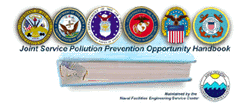Classification of used oil filters as non-hazardous solid waste for disposal purposes or for metal recycling can often be accomplished by crushing or otherwise voiding the filters of oil. Crushing and draining used oil filters to manage as non-hazardous solid waste reduces hazardous waste disposal costs. Waste managers must contact recycling facilities to ensure drainage techniques and handling methods are compatible with the recycling facility's requirements. Waste managers must also contact their state to verify what requirements may apply beyond the following Environmental Protection Agency (EPA) requirements. Several states have more stringent requirements and do not allow the disposal of oil filters in landfills.
The EPA used oil filter regulation, published in Title 40the Code of Federal Regulations (CFR), 40 CFR 261.4(b)(13), "Exclusions" states non-terne plated used oil filters are excludeds oil filters from regulation as a hazardous waste regulations provided they are not mixed with any of the wastes listed in Subpart D, "Lists of Hazardous Wastes." Specifically, that three criteria for the filters must be are met: 1) the filters must not be terne plated; 2) must not be mixed with listedother hazardous waste; and 3) must be gravity hot-drained. These criteria are further explained as follows.
Non-Terne Plated
Terne is an alloy of tin and lead formerly used to cover the interior of oil filters. The lead content may cause terne-plated filters to become toxic.
Mixture Rule
According to 40 CFR 261.3 "definition of hazardous waste," a solid waste is exempted from regulation as a hazardous waste if it is excluded under 40 CFR 261.4(b). The exclusion in 40 CFR 261.4(b) applies only to hot-drained, non-terne plated used oil filters, that have not been mixed with wastes that are listed in Subpart D of 40 CFR 261.
Gravity Hot-Draining
Non-terne plated used oil filters are exempted from regulation as a hazardous waste provided they have been gravity hot-drained using one of the following methods:
- Puncturing the filter anti-drain back valve or the filter dome end and hot-draining;
- Hot-draining and crushing;
- Dismantling and hot-draining; or
- Any other equivalent hot-draining method that will remove used oil.
The EPA defines hot draining in 57 Federal Register 21523 as draining the oil filter near engine operating temperature and above room temperature. The EPA also recommends a minimum hot-drain time of 12 hours. The preamble also states, "if an oil filter is picked up by hand or lifted by machinery and used oil immediately drips or runs from the filter, the filter should not be considered to be drained." Some states require a greater amount of oil to be removed from the filters before recycling.
Oil filters are currently collected for recycling at Naval Station San Diego. The filters are crushed using a commercial filter crusher. All free-flowing oil is removed and collected during the crushing process. The used filters are gathered until a minimum of 5,000 pounds is accumulated. The collected filters are shipped to a local steel mill, where they are used as feed stock in the company's steel mill operations.
An oil filter crushing operation has also been established at the Puget Sound Naval Shipyard. This operation has been very successful in minimizing the hazardous waste disposal costs associated with oil filters.
